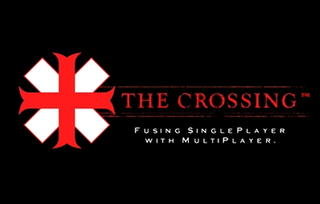
Blizzard Entertainment, Inc. is an American video game developer and publisher based in Irvine, California. A subsidiary of Activision Blizzard, the company was founded in February 1991 as Silicon & Synapse, Inc. by three graduates of the University of California, Los Angeles: Michael Morhaime, Frank Pearce and Allen Adham. The company originally concentrated on the creation of game ports for other studios' games before beginning development of their own software in 1993, with games like Rock n' Roll Racing and The Lost Vikings. In 1993, the company became Chaos Studios, Inc., and then Blizzard Entertainment soon after being acquired by distributor Davidson & Associates early in the following year. Shortly after, Blizzard released Warcraft: Orcs & Humans.

Activision Publishing, Inc. is an American video game publisher based in Santa Monica, California. It serves as the publishing business for its parent company, Activision Blizzard, and consists of several subsidiary studios. Activision is one of the largest third-party video game publishers in the world and was the top United States publisher in 2016.
A massively multiplayer online game is an online video game with a large number of players on the same server. MMOs usually feature a huge, persistent open world, although there are games that differ. These games can be found for most network-capable platforms, including the personal computer, video game console, or smartphones and other mobile devices.
Infinity Ward, Inc. is an American video game developer. They developed the video game Call of Duty, along with seven other installments in the Call of Duty series. Vince Zampella, Grant Collier, and Jason West established Infinity Ward in 2002 after working at 2015, Inc. previously. All of the 22 original team members of Infinity Ward came from the team that had worked on Medal of Honor: Allied Assault while at 2015, Inc. Activision helped fund Infinity Ward in its early days, buying up 30 percent of the company, before eventually fully acquiring them. The studio's first game, World War II shooter Call of Duty, was released on the PC in 2003. The day after the game was released, Activision bought the rest of Infinity Ward, signing employees to long-term contracts. Infinity Ward went on to make Call of Duty 2, Call of Duty 4: Modern Warfare, Call of Duty: Modern Warfare 2, Call of Duty: Modern Warfare 3, Call of Duty: Ghosts, Call of Duty: Infinite Warfare, the Modern Warfare reboot, and its sequel.

Neversoft Entertainment, Inc. was an American video game developer based in Woodland Hills, California. The studio was founded by Joel Jewett, Mick West and Chris Ward in July 1994 and was acquired by Activision in October 1999. Initially, the studio worked with Playmates Toys, where they worked on the game Skeleton Warriors, which was based on a animated television series of the same name. Throughout 1996, the studio grew, and worked on projects with Crystal Dynamics and Sony Computer Entertainment, but due to internal conflicts, they were cancelled.

The World Opponent Network was an online video game service, originally developed by Sierra On-Line as the Sierra Internet Gaming System (SIGS). SIGS-based and WON-based servers operated from 1996 until 2008.

GameSpy was an American provider of online multiplayer and matchmaking middleware for video games founded in 1999 by Mark Surfas. After the release of a multiplayer server browser for Quake, QSpy, Surfas licensed the software under the GameSpy brand to other video game publishers through a newly established company, GameSpy Industries, which also incorporated his Planet Network of video game news and information websites, and GameSpy.com.
NovaLogic, Inc. was a software developer and publisher established in 1985 and based in Calabasas, California. The company was founded by CEO John A. Garcia. Garcia's background in computer software started in Southern California in the early 1980s, when he worked at Datasoft. The company was known for their Voxel Space engine, which was utilized in franchises such as the Comanche and Delta Force series. In October 2016, NovaLogic's assets were bought out by THQ Nordic who are not currently using the label.

Roger Wilco is one of the first voice-over-IP client programs designed primarily for use with online multiplayer video games. Roger Wilco enabled online gamers to talk to one another through a computer headset or other audio input device instead of typing messages to each other. Within a year of the software's introduction, over 2 million online video gamers were using the application.

Telekinesys Research Limited (TR), doing business as Havok Group, is an Irish software company founded on 9 July 1998 by Hugh Reynolds and Steven Collins, based in Dublin, Ireland, and owned by Microsoft's Ireland Research subsidiary. They have partnerships with Activision, Electronic Arts, Nintendo, Xbox Game Studios, Sony Interactive Entertainment, Bethesda Softworks and Ubisoft.

The Crossing is a cancelled first-person shooter video game by Arkane Studios, which attempted to fuse single-player and multiplayer by threading its single-player campaign through live multiplayer games.
Activision Blizzard, Inc. is an American video game holding company based in Santa Monica, California. Activision Blizzard currently includes five business units: Activision Publishing, Blizzard Entertainment, King, Major League Gaming, and Activision Blizzard Studios.
ZeniMax Online Studios LLC is an American video game developer and a subsidiary of ZeniMax Media, specializing in massively multiplayer online games. The company developed The Elder Scrolls Online and its downloadable content. ZeniMax Online Studios had around 250 employees in 2012. In addition to the main Hunt Valley, Maryland based office, ZeniMax Online also maintains a satellite studio in Budapest, Hungary as well as a customer support center in Galway, Ireland and an additional office in Austin, Texas.

Impulse was a digital distribution and multiplayer platform. Originally developed by Stardock to succeed Stardock Central, it was purchased by GameStop in March 2011, and was subsequently rebranded as GameStop PC Downloads, with the client being renamed GameStop App. The client was discontinued in April 2014.

Call of Duty: World at War is a 2008 first-person shooter game developed by Treyarch and published by Activision. It is the fifth main installment of the Call of Duty series and is the fourth entry in the series to be set during World War II. The game was announced by Activision in June 2008 and was released in November 2008, for PlayStation 3, Windows, Xbox 360, and Wii. Other games under the World at War title were published for the Nintendo DS and PlayStation 2, featuring different storylines and missions.

Blur is a 2010 vehicular combat arcade-style racing video game for Microsoft Windows, PlayStation 3 and Xbox 360. It was developed by Bizarre Creations, published by Activision in North America and Europe, and published in Japan by Square Enix. The game features a racing style that incorporates real world cars and locales with arcade style handling and vehicular combat. Blur was the penultimate game developed by Bizarre Creations before they were shut down by Activision on February 18, 2011.

Video gaming in the United States is one of the fastest-growing entertainment industries in the country. The American video game industry is the largest video game industry in the world. According to a 2020 study released by the Entertainment Software Association, the yearly economic output of the American video game industry in 2019 was $90.3 billion, supporting over 429,000 American jobs. With an average yearly salary of about $121,000, the latter figure includes over 143,000 individuals who are directly employed by the video game business. Additionally, activities connected to the video game business generate $12.6 billion in federal, state, and local taxes each year. World Economic Forum estimates that by 2025 the American gaming industry will reach $42.3 billion while worldwide gaming industry will possibly reach US$270 billion. The United States is one of the nations with the largest influence in the video game industry, with video games representing a significant part of its economy.

Heavy Gear II is a mecha based first-person shooter video game. Set in Dream Pod 9's Heavy Gear universe, the game was developed and published by Activision in 1999 for Microsoft Windows; it was ported to Linux in 2000 by Loki Software. It is a sequel to the 1997 video game Heavy Gear.
In the video game industry, games as a service (GaaS) represents providing video games or game content on a continuing revenue model, similar to software as a service. Games as a service are ways to monetize video games either after their initial sale, or to support a free-to-play model. Games released under the GaaS model typically receive a long or indefinite stream of monetized new content over time to encourage players to continue paying to support the game. This often leads to games that work under a GaaS model to be called "living games", "live games", or "live service games" since they continually change with these updates.












